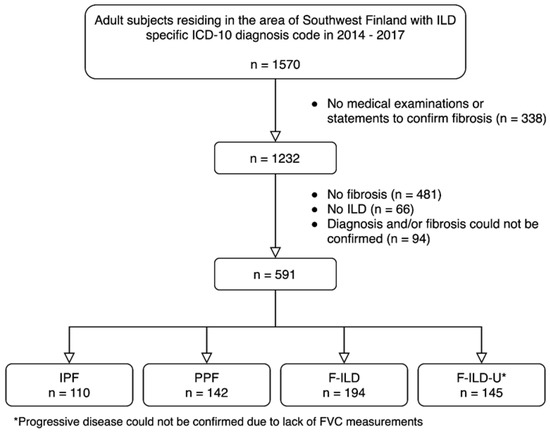Icd 10 Code for Low Magnesium for low magnesium is E83.42. It indicates a deficiency in magnesium levels.
Many health problems can result from low magnesium levels. One mineral that is absolutely necessary for maintaining general health is magnesium. It is involved in more than 300 biochemical reactions in the body, including muscle and nerve function, regulation of blood pressure, and the production of protein, bone, and DNA.
Symptoms of low magnesium may include muscle cramps, irregular heartbeat, fatigue, and weakness. It is important to address and correct low magnesium levels through dietary changes and, if necessary, supplementation. Seeking medical advice is essential for proper diagnosis and treatment of low magnesium.

Credit: www.federalregister.gov
What Is Icd 10 Code For Low Magnesium
When it comes to medical coding, the International Classification of Diseases (ICD) is an essential tool that healthcare professionals rely on. The ICD-10, in particular, is the 10th revision of the ICD, which provides a standardized system for classifying and coding diseases, symptoms, and procedures. It is essential to the healthcare sector because it makes correct billing, research, and documentation possible.
Definition Of Icd 10 Code
The ICD-10 code for low magnesium is E83.4. This specific code is used to represent the deficiency or low levels of magnesium in the body. Magnesium is an essential mineral that contributes to various bodily functions, including muscle and nerve function, energy production, and the regulation of blood pressure.
This ICD-10 code is part of a larger grouping of codes called “Other Disorders of Mineral Metabolism.” These codes are used to classify conditions that involve imbalances or abnormalities in essential minerals like magnesium, calcium, and phosphorus.
Importance Of Icd 10 Code For Low Magnesium
The ICD-10 code for low magnesium holds significant importance in the healthcare industry. Here are a few reasons why:
- Accurate Diagnosis: By using the specific ICD-10 code for low magnesium (E83.4), healthcare professionals can precisely diagnose and document cases of magnesium deficiency. This aids in appropriate patient management and treatment planning.
- Effective Communication: Medical coding, including ICD-10, serves as a universal language for healthcare providers. By utilizing the ICD-10 code for low magnesium, healthcare professionals can communicate information about a patient’s condition accurately and efficiently across various medical settings.
- Billing and Reimbursement: Correct coding of low magnesium using the ICD-10 code E83.4 ensures that healthcare providers can accurately bill for their services and receive appropriate reimbursement from insurance companies. This supports the financial sustainability of healthcare organizations and helps maintain the continuity of patient care.
- Research and Data Analysis: The use of ICD-10 codes, including the code for low magnesium, enables the collection, analysis, and comparison of data on various medical conditions. Researchers and public health authorities can utilize this information to identify patterns, evaluate treatment outcomes, and develop strategies for improving patient care.
In conclusion, the ICD-10 code for low magnesium (E83.4) plays a significant role in accurately classifying and coding cases of magnesium deficiency. This code ensures proper documentation, effective communication, appropriate billing, and supports research and data analysis. Healthcare professionals rely on the ICD-10 code for low magnesium to provide quality care and improve patient outcomes.
Causes Of Low Magnesium
Low magnesium levels can stem from varied sources, leading to potential health issues. Properly identifying and utilizing the ICD-10 code for low magnesium is crucial for accurate diagnosis and treatment. Ensuring sufficient magnesium intake through diet and supplements can help mitigate the risk of deficiency.
The ICD-10 code for low magnesium is E83.42, which indicates a deficiency of magnesium in the body. This essential mineral plays a critical role in various bodily functions such as muscle and nerve function, blood sugar control, and bone health. Understanding the causes of low magnesium is crucial in managing this condition effectively.
Dietary Factors
A diet lacking in magnesium-rich foods can lead to low magnesium levels in the body. Consuming processed and refined foods, which often contain minimal magnesium, can contribute to this deficiency. Inadequate intake of leafy greens, nuts, seeds, and whole grains can also lead to low magnesium levels.
Medications And Medical Conditions
Certain medications, such as diuretics and proton pump inhibitors, can interfere with magnesium absorption and increase its excretion, leading to a deficiency. Medical conditions like diabetes, gastrointestinal diseases, and renal disorders can also impair the body’s ability to absorb and retain magnesium, contributing to low levels.
Understanding the various causes of low magnesium, including dietary factors and the impact of medications and medical conditions, is essential for effectively addressing this deficiency. By addressing these factors and ensuring adequate magnesium intake, individuals can take proactive steps to maintain optimal magnesium levels in the body.
Symptoms And Diagnosis
The symptoms of low magnesium may include muscle cramps, fatigue, and abnormal heart rhythm. Diagnosis is typically confirmed using the ICD-10 code E83. 42 for hypomagnesemia. If you are experiencing these symptoms, consult a healthcare professional for proper evaluation and treatment.
Common Symptoms Of Low Magnesium
Low magnesium levels exhibit symptoms such as muscle cramps, twitches, fatigue, and weakness.
- Irregular heart rhythm
- Loss of appetite
- Nausea and vomiting
- Numbness and tingling
Diagnostic Tests For Low Magnesium
To diagnose low magnesium, healthcare providers perform tests such as:
- Blood test to measure magnesium levels
- Urine test to check magnesium excretion
- Electrocardiogram (ECG) to monitor heart function
Icd 10 Code For Low Magnesium And Its Components
In the healthcare industry, the ICD-10 code for low magnesium, known as hypomagnesemia, plays a crucial role in accurately diagnosing and treating patients with magnesium deficiency. Understanding the components of the ICD-10 code for low magnesium is essential for healthcare providers to address this deficiency effectively.
Icd 10 Code For Hypomagnesemia
For hypomagnesemia, the specific ICD-10 code is E83.42. This code is used to document and track cases of low magnesium levels in patients’ medical records for proper management.
Subcategories And Additional Codes
Hypomagnesemia does not have subcategories, but healthcare practitioners may also use the code E83.49 for other specified disorders of magnesium metabolism in certain situations.
Associated Diagnoses And Codes
- E87.6 – Hypokalemia (low potassium levels)
- E88.9 – Metabolic disorder, unspecified
- E83.89 – Other specified disorders of mineral metabolism
- E119: Complication-free type 2 diabetic mellitus
Treatment And Management
When managing low magnesium levels, it’s crucial to implement a comprehensive treatment plan. The ICD-10 code for low magnesium is E83.42, which can lead to various health complications if left unaddressed. To effectively manage low magnesium, a combination of lifestyle changes, dietary adjustments, supplemental magnesium, and medical interventions should be considered.
Lifestyle Changes
Inculcating balanced routines, regular exercise, and stress management can greatly help in regulating magnesium levels. Prioritizing ample rest and relaxation is also crucial for overall well-being.
Dietary Recommendations
Emphasize a diet rich in magnesium, incorporating green leafy vegetables, nuts, seeds, and whole grains. Limiting processed foods and excessive caffeine can aid in magnesium absorption.
Supplemental Magnesium
Considering magnesium supplements under the guidance of a healthcare professional can address deficiencies. Different formulations such as magnesium citrate or magnesium glycinate may be recommended.
Medical Interventions
In severe cases, intravenous magnesium administration may be necessary to rapidly restore levels. Regular monitoring by healthcare providers is essential for tailored medical intervention.

Credit: pharmeasy.in
Complications And Risks
The ICD-10 code for low magnesium identifies the potential complications and risks associated with this condition. These can include muscle cramps, irregular heart rhythms, and neurological disorders. Recognizing and addressing low magnesium levels is crucial for maintaining overall health and wellbeing.
Complications and Risks
Complications and risks associated with untreated low magnesium can have a significant impact on overall health and well-being. Understanding these consequences is crucial in order to prevent further complications and take necessary precautions. In this section, we will delve into the consequences of untreated low magnesium, as well as the risks and precautions to be aware of.
Consequences Of Untreated Low Magnesium
Untreated low magnesium levels in the body can lead to a variety of complications that can affect multiple systems. It is important to address these consequences promptly to avoid further health issues. Some of the potential complications include:
- Cardiac Arrhythmias: Low magnesium levels can interfere with the electrical impulses in the heart, leading to irregular heartbeats or arrhythmias.
- Muscle Weakness and Cramps: Magnesium plays a crucial role in muscle function. When levels are low, it can result in muscle weakness, cramps, and even spasms.
- Metabolic Disorders: Magnesium is involved in numerous metabolic processes, including energy production and glucose metabolism. Insufficient magnesium can disrupt these processes, potentially leading to metabolic disorders like diabetes.
- Osteoporosis: Magnesium is essential for bone health. When levels are low, it can contribute to the development and progression of osteoporosis, a condition characterized by weak and brittle bones.
- Mental Health Issues: Low magnesium levels have been associated with an increased risk of depression, anxiety, and other mental health disorders. Adequate magnesium levels are vital for maintaining optimal mental well-being.
Risks And Precautions
Understanding the risks associated with low magnesium and taking appropriate precautions can help prevent further complications. Some important considerations include:
| Risks | Precautions |
|---|---|
|
|
|
|
|
|
By recognizing the consequences of untreated low magnesium and being aware of the associated risks and precautions, you can actively take steps to maintain optimal magnesium levels and support your overall health. Consult your healthcare provider for personalized advice and guidance based on your specific needs. Remember, prevention and proactive management are key to avoiding further complications related to low magnesium.
Prevention And Maintenance
Preventing low magnesium levels is essential for maintaining overall health and well-being. By implementing preventive measures and monitoring magnesium levels regularly, you can ensure your body receives the necessary amount of this important mineral. Here are some steps you can take:
Preventive Measures
To prevent low magnesium levels, it’s important to incorporate magnesium-rich foods into your diet. Include foods such as:
- Leafy green vegetables (spinach, kale, Swiss chard)
- Nuts and seeds (almonds, pumpkin seeds, sunflower seeds)
- Whole grains (brown rice, quinoa, oats)
- Legumes (beans, lentils, chickpeas)
- Fruits (avocado, banana, figs)
- Seafood (salmon, mackerel, halibut)
In addition to a balanced diet, it may be necessary to consider magnesium supplements under the guidance of a healthcare professional. However, be sure to consult with your doctor before starting any new supplement.
Monitoring Magnesium Levels
Regularly monitoring magnesium levels is crucial in maintaining optimal health. Your healthcare provider may perform blood tests to assess your magnesium levels. These tests can help determine if your magnesium levels are within the normal range or if intervention is necessary.
By proactively taking preventive measures and monitoring magnesium levels, you can prevent low magnesium levels and ensure your body functions at its best.

Credit: www.mdpi.com
Frequently Asked Questions Of Icd 10 Code For Low Magnesium
What Is The Icd-10 Code For Low Magnesium?
The ICD-10 code for low magnesium is E83. 42.
What Is The Icd-10 Code For Abnormal Magnesium Levels?
The ICD-10 code for abnormal magnesium levels is E83. 42. This code specifically covers abnormal levels of magnesium in the blood.
What Is Hypomagnesemia?
A disorder called hypomagnesemia is defined by low blood magnesium levels. Muscle spasms, weakness, and an irregular pulse are possible symptoms. It can be caused by certain medications or conditions like alcoholism or malabsorption disorders. Treatment involves magnesium supplements and addressing the underlying cause.
What Is The Icd 9 Code For Low Magnesium Level?
The ICD 9 code for low magnesium level is 275. 2.
Conclusion
Understanding the ICD 10 code for low magnesium is crucial for accurate medical coding and billing. Proper documentation and coding practices are essential in ensuring smooth reimbursement processes and maintaining compliance. By maintaining awareness of the specific codes and guidelines, healthcare providers can deliver better patient care and improve overall healthcare system efficiency.


